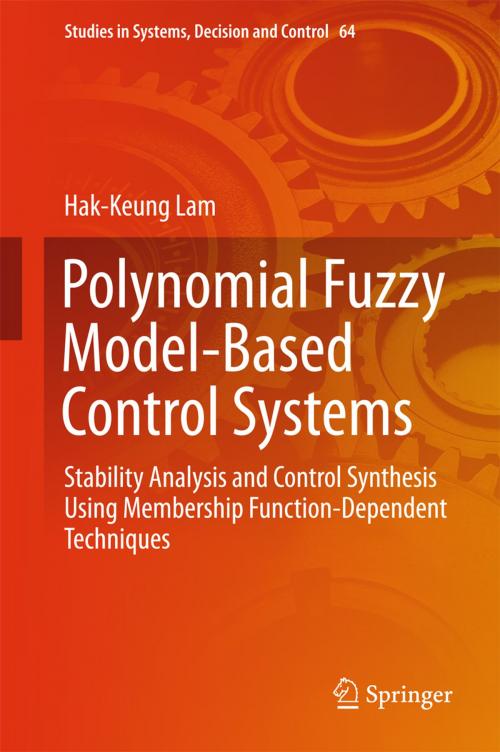Polynomial Fuzzy Model-Based Control Systems
Stability Analysis and Control Synthesis Using Membership Function Dependent Techniques
Nonfiction, Science & Nature, Technology, Automation, Computers, Advanced Computing, Artificial Intelligence| Author: | Hak-Keung Lam | ISBN: | 9783319340944 |
| Publisher: | Springer International Publishing | Publication: | July 18, 2016 |
| Imprint: | Springer | Language: | English |
| Author: | Hak-Keung Lam |
| ISBN: | 9783319340944 |
| Publisher: | Springer International Publishing |
| Publication: | July 18, 2016 |
| Imprint: | Springer |
| Language: | English |
This book presents recent research on the stability analysis of polynomial-fuzzy-model-based control systems where the concept of partially/imperfectly matched premises and membership-function dependent analysis are considered. The membership-function-dependent analysis offers a new research direction for fuzzy-model-based control systems by taking into account the characteristic and information of the membership functions in the stability analysis.
The book presents on a research level the most recent and advanced research results, promotes the research of polynomial-fuzzy-model-based control systems, and provides theoretical support and point a research direction to postgraduate students and fellow researchers. Each chapter provides numerical examples to verify the analysis results, demonstrate the effectiveness of the proposed polynomial fuzzy control schemes, and explain the design procedure. The book is comprehensively written enclosing detailed derivation steps and mathematical derivations also for readers without extensive knowledge on the topics including students with control background who are interested in polynomial fuzzy model-based control systems.
This book presents recent research on the stability analysis of polynomial-fuzzy-model-based control systems where the concept of partially/imperfectly matched premises and membership-function dependent analysis are considered. The membership-function-dependent analysis offers a new research direction for fuzzy-model-based control systems by taking into account the characteristic and information of the membership functions in the stability analysis.
The book presents on a research level the most recent and advanced research results, promotes the research of polynomial-fuzzy-model-based control systems, and provides theoretical support and point a research direction to postgraduate students and fellow researchers. Each chapter provides numerical examples to verify the analysis results, demonstrate the effectiveness of the proposed polynomial fuzzy control schemes, and explain the design procedure. The book is comprehensively written enclosing detailed derivation steps and mathematical derivations also for readers without extensive knowledge on the topics including students with control background who are interested in polynomial fuzzy model-based control systems.















